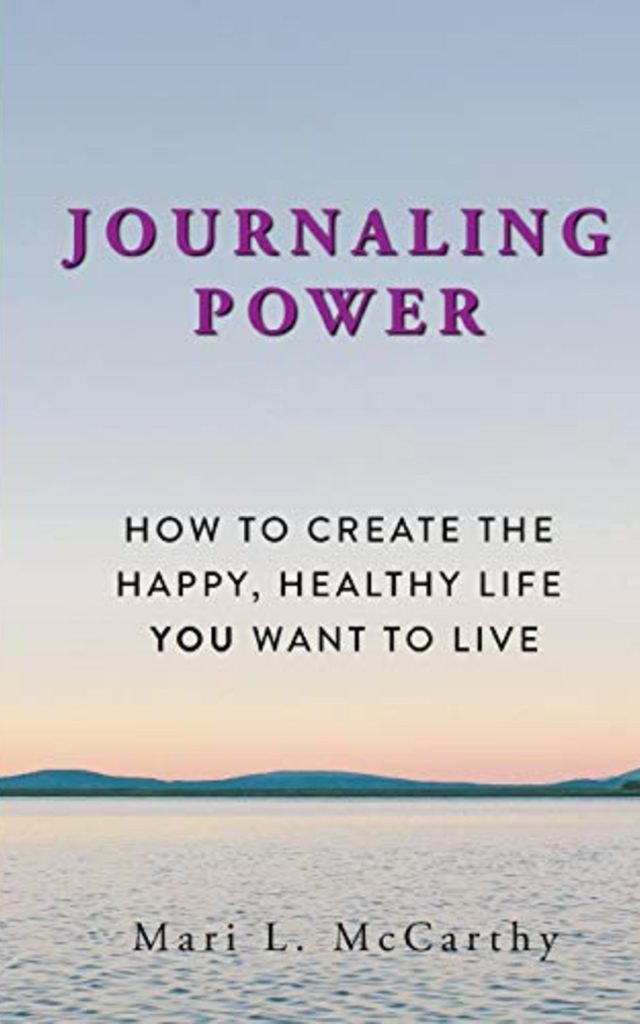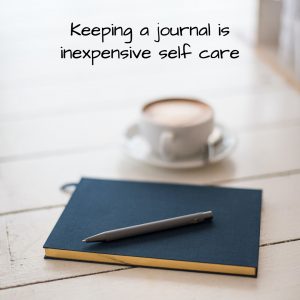
Socrates said that the unexamined life is not worth living. But how does one go about examining a life while still immersed in it?
Even with the slowdown of a pandemic, our minds never seem to dial back. The constant chatter of the universe is always clamoring for our attention.
(Dang, I just got another Clubhouse notification. Am I missing out? Should I be there?)
The secret, for many of us, lies in a combination of writing and practice—specifically, a journaling practice. Even if you’ve tried and abandoned journaling before, I suggest you pick up Mari L. McCarthy’s book Journaling Power.

It’s a guide to building a journaling practice into your own life. The book is both simple and powerful.
In the “nonfiction writing” category, this book combines how-to, exposition (why-to), and story.
How and why to keep a journal
At its heart, it’s a how-to book. Each chapter shares prompts to get started on (or restart), your own journaling practice.
But for most of us, the problem isn’t knowing what to do—it’s doing it.
Julia Cameron’s description of morning pages in her book The Artist’s Way originally inspired McCarthy. I, too, had read that book, and thought it sounded cool. But then, I went about my distinctly non-artsy life. This practice seemed to belong to a different type of person, in a different type of life.
Not so. In Journaling Power, Mari McCarthy presents extensive research into the benefits of writing for oneself, including many studies I had not seen.
She refers to the work of James Pennebaker, who has studied and documents the value of what he calls expressive writing, or writing as therapy. There’s also other research into the use of journaling on topics as diverse as handling stress, healing from trauma, overall health, and getting to sleep.
Stress? Sleep? Overall health? Sign me up.
The stories
Like most good nonfiction writing, Journaling Power supplements this research and instruction with compelling personal stories. And stories might move you to pick up that pen and paper and try journaling one more time.
The author generously shares the story of a health crisis, and how she used journaling to address it and transform her life. She has completely reshaped her life around this practice. It’s an inspiring tale.
She also shares other stories of people finding significant advances through journaling. But the one that matters most, of course, is yours. Here’s what I’ve found.
My story with this book
Reading this book inspired me to readjust my personal writing practice to include those morning pages.
Although I’ve been keeping an online journal in the morning for years, it veers quickly into general planning for the day. Not much deep introspection happening there.
Freewriting is a another critical part of my writing practice—writing to myself to explore topics. Nearly every piece of content I create, from blog posts to books, has its origins in a freewriting file meant just for my own eyes. (See my post on freewriting on the CreateWriteNow site.)
But morning pages are something else altogether—something just for me. I write it by hand first thing, before checking email. No one will read it but me.
Journaling is an inexpensive, effective form of self-care—cheaper than a spa day, healthier than a drink.

I’ve been doing this every day now for weeks since reading her book, and am floored by the results. The process has given me new perspectives on tricky issues and awareness of invisible burdens and limits I carry with me.
This book has reignited that practice for me, and its benefits are already showing up in my life.
What will journaling do for you? If you’ve been skeptical, or stalled out on your practice, pick up Journaling Power. Then start writing—for yourself.
Other Reading
Read my post about freewriting and its role in my book process on the CreateWriteNow blog: How Journaling Led Me to Writing Books.
For more inspiration, read the post Move the Starting Line.